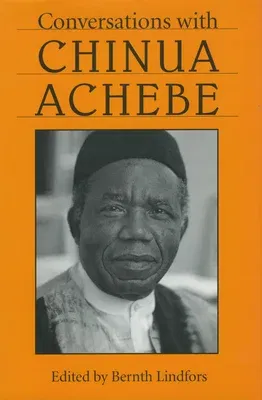Chinua Achebe's books are being read throughout the English-speaking
world. They have been translated into more than fifty languages. His
publishers estimate that more than eight million copies of his first
novel Things Fall Apart (1958) have been sold. As a consequence, he is
the best known and most widely studied African author. His distinguished
books of fiction and nonfiction include No Longer at Ease, Arrow of
God, Morning Yet on Creation Day, Christmas in Biafra, and others.
Achebe often has been called the inventor of the African novel. Although
he modestly denies the title, it is true that modern African literature
would not have flowered so rapidly and spectacularly had he not led the
way by telling Africa's story from a distinctively African point of
view. Many other Africans have been inspired to write novels by his
example.
The interviews collected here span more than thirty years of Achebe's
writing career. The earliest was recorded in 1962, the latest in 1995.
Together they offer a representative sample of what he has said to
interviewers for newspapers, journals, and books in many different
countries. Through his own statements we can see Achebe as a man of
letters, a man of ideas, a man of words.
As these interviews show, Achebe is an impressive speaker and gifted
conversationalist who expresses his ideas in language that is simple yet
pungent, moderate yet peppered with colorful images and illustrations.
It is this talent for deep and meaningful communication, this intimate
way with words, that makes his interviews a delight to read. He has a
facility for penetrating to the essence of a question and framing a
response that addresses the concerns of the questioner and sometimes
goes beyond those concerns to matters of general interest.
"People," he says, "are expecting from literature serious comment on
their lives. They are not expecting frivolity. They are expecting
literature to say something important to help them in their struggle
with life. This is what literature, what art, is supposed to do: to give
us a second handle on reality so that when it becomes necessary to do
so, we can turn to art and find a way out. So, it is a serious matter."

